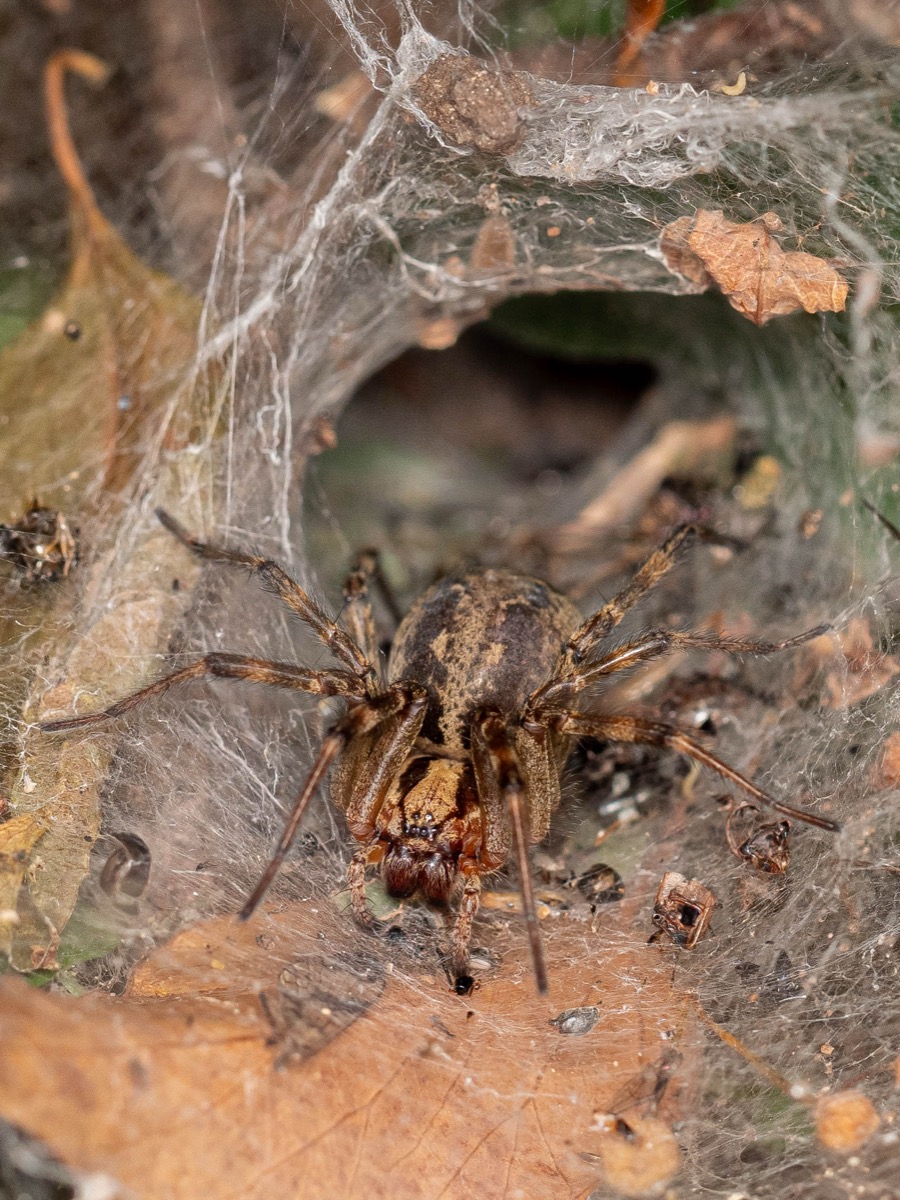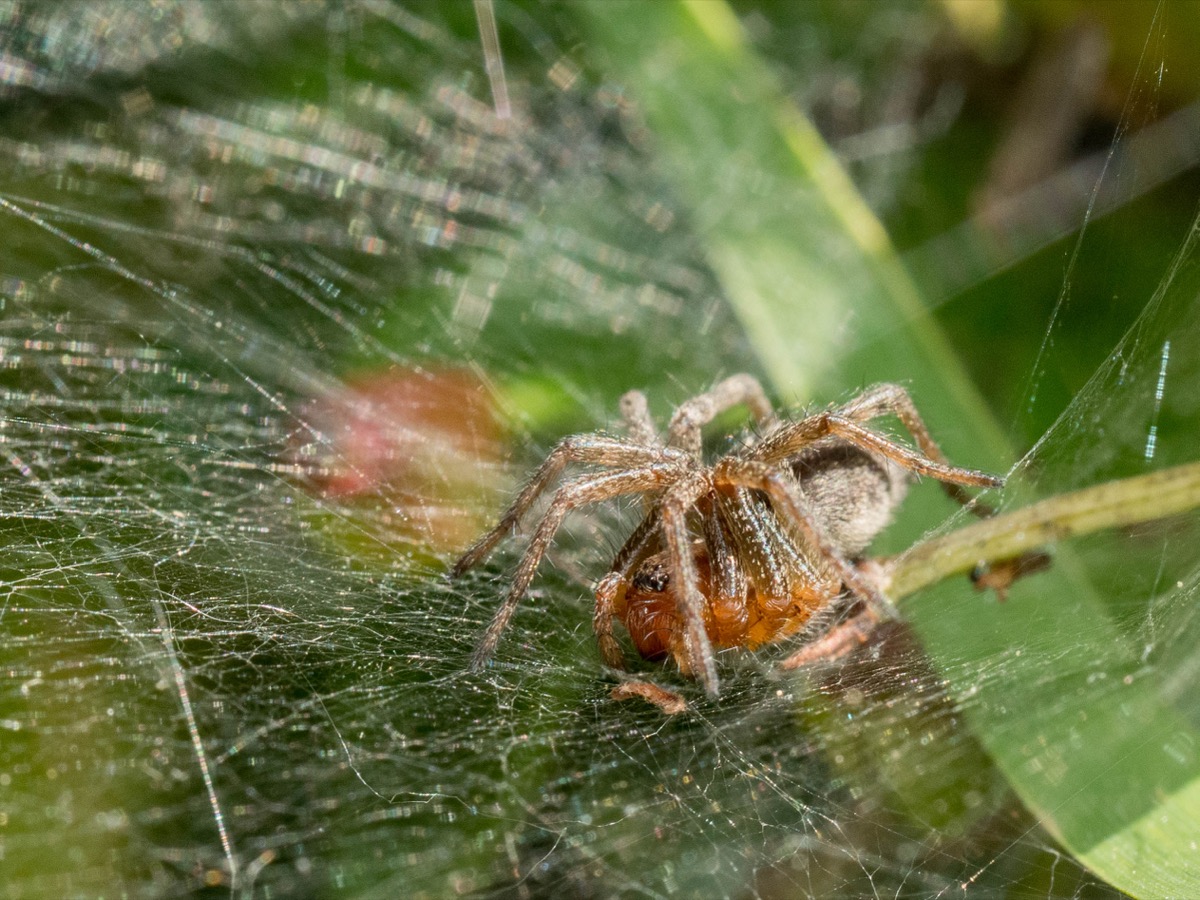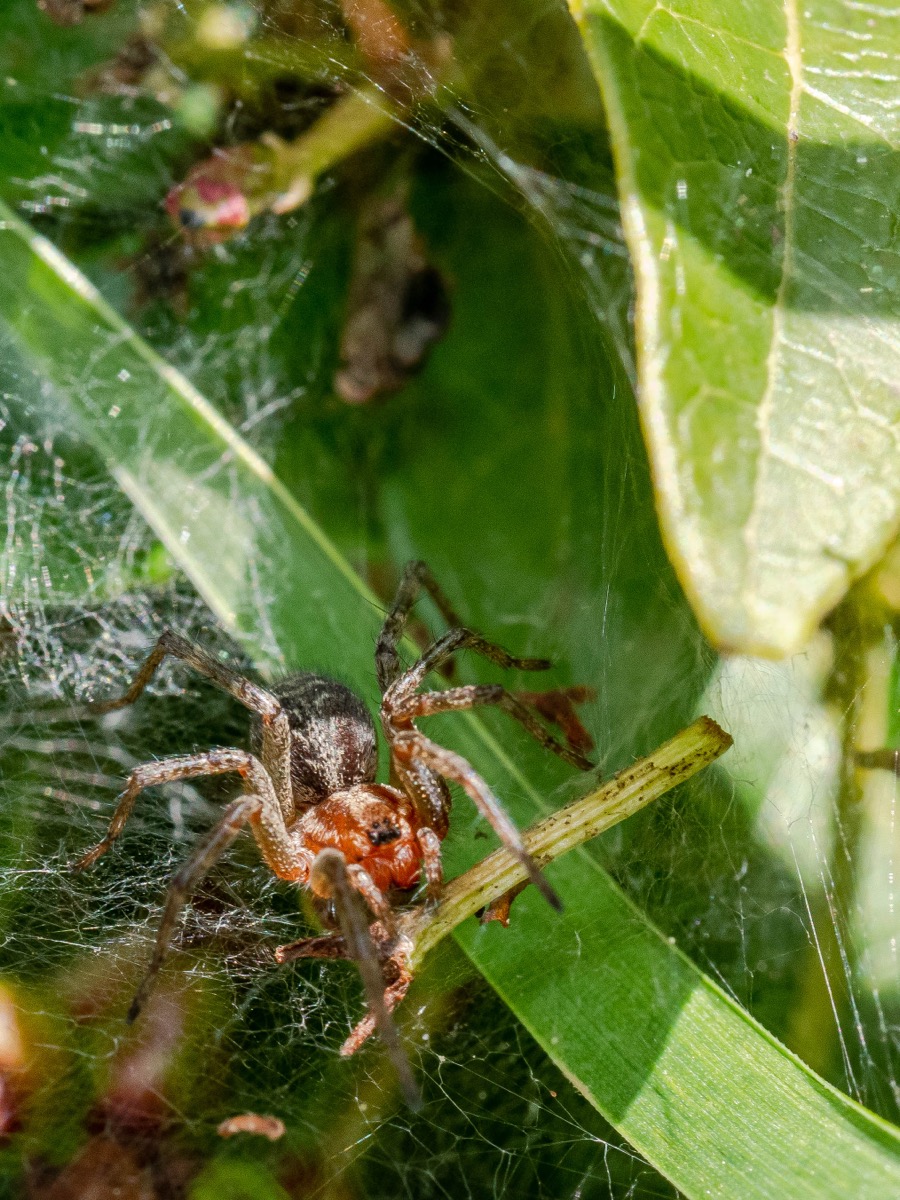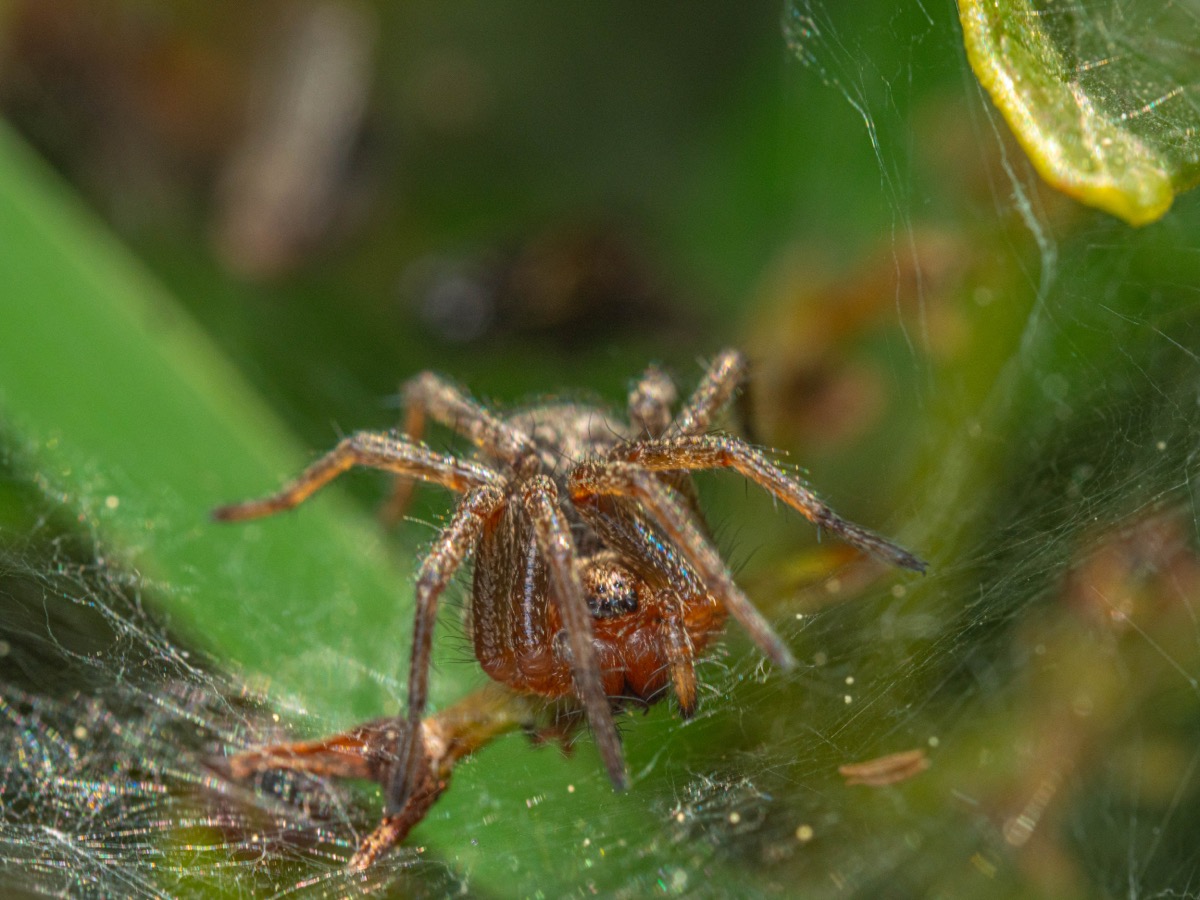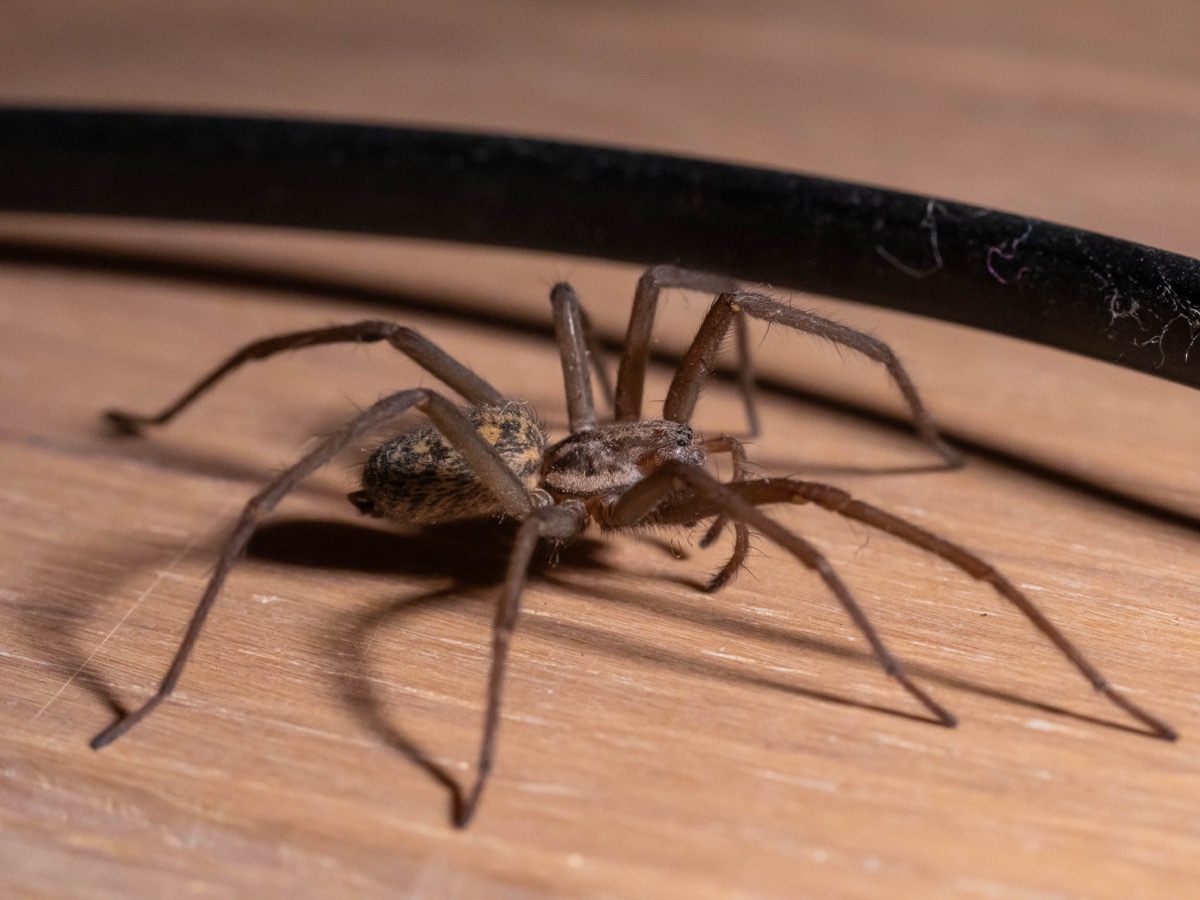Agelenidae are spiders that weave horizontal sheet webs with a typical funnel-shaped retreat. These are very fast spiders, which retreat into their funnel at the slightest disturbance on the web.
Funnel web:
Agelenidae are known for building funnel-shaped webs. These webs consist of a horizontal sheet at the funnel’s entrance and a vertical funnel-shaped part descending into a burrow. The spiders hide at the entrance of the funnel and wait for prey to be trapped on the web.
Morphology:
Agelenidae typically have slender, elongated bodies with long, thin legs. Their coloration and appearance vary, but many display shades of brown and gray that help them blend into their surroundings.
Feeding behavior:
Agelenidae spiders are ambush predators. They hide at the entrance of their funnel web and detect vibrations from prey caught on the sheet. They quickly emerge to seize their prey as soon as they detect movement.
🧬 Characteristics
- Horizontal web (sheet) with a funnel retreat
- Eyes arranged in two rows of four
- Non-sticky silk, but extremely dense
- Fast runners on the web or ground
📍 Distribution and habitats
They are found:
- Under stones, in walls, sheds, cellars
- In temperate forests
- On man-made structures: garages, dark corners
- Especially common in Europe, North America, and Asia
🧭 Observation
In the morning, their web is often covered in dew and becomes very visible. Agelenidae usually remain still in their funnel, unless prey is trapped or they are disturbed.
🕷️ Common genera
- Tegenaria – Very widespread, often found in houses
- Eratigena – Formerly included in Tegenaria (e.g., Eratigena atrica)
- Agelena – Type genus, more forest-dwelling
- Hololena, Calilena – Found in North America
List of Agelenidae genera (external link to Araneae)
Genus Agelena
Agelena labyrinthica – Labyrinth Spider
| Order | Aranea |
|---|---|
| Family (Aranea) | Agelenidae |
| Genus | Agelena |
| Species | Labyrinthica |
| Identifier | Clerck |
| Year identified | 1757 |
| Male size min | 8 |
| Male size max | 11 |
| Female size min | 9 |
| Female size max | 15 |
| Color | Yellow-brown |
| Prosoma/Cephalothorax | yellow-brown with two broad longitudinal bands near the front |
| Opisthosoma/Abdomen | dark with a central pale band flanked by white chevron markings |
| Legs (Aranea) | – |
| Spider habitat | Forests, bushes, dry grassland, close to the ground |
| Web | sheet web with funnel retreat |
| Period start | May |
| Period end | September |
| Range | Europe |
| Distinctive features | – |
The labyrinth spider (Agelena labyrinthica) is gray-yellow-light brown with two broad dark longitudinal bands toward the front of the spider.
Its web is horizontal and non-sticky. A tubular retreat can be found in the center.
References:
https://www.gbif.org/fr/species/2139576
https://fr.wikipedia.org/wiki/Agelena_labyrinthica
Genus Eratigena
Tegenaria domestica – Common House Spider
| Order | Aranea |
|---|---|
| Family (Aranea) | Agelenidae |
| Genus | Tegenaria |
| Species | Domestica |
| Identifier | Clerck |
| Year identified | 1757 |
| Male size min | 6 |
| Male size max | 9 |
| Female size min | 7.5 |
| Female size max | 11.5 |
| Color | Yellow-brown-gray |
| Prosoma/Cephalothorax | yellow-brown with a wide dark border and dark lines |
| Opisthosoma/Abdomen | light gray with darker chevrons |
| Legs (Aranea) | yellowish, banded with brown spots |
| Spider habitat | House/indoors |
| Web | funnel-shaped web |
| Period start | January |
| Period end | December |
| Range | North America, South America, Palearctic region, Oceania |
| Distinctive features |
The house spider is our little domestic companion… It prefers dark areas and commonly frequents the most lived-in spaces of the home.
It is mostly nocturnal and rebuilds its web every night.
References:
https://www.gbif.org/fr/species/2139961
https://fr.wikipedia.org/wiki/Tegenaria_domestica
